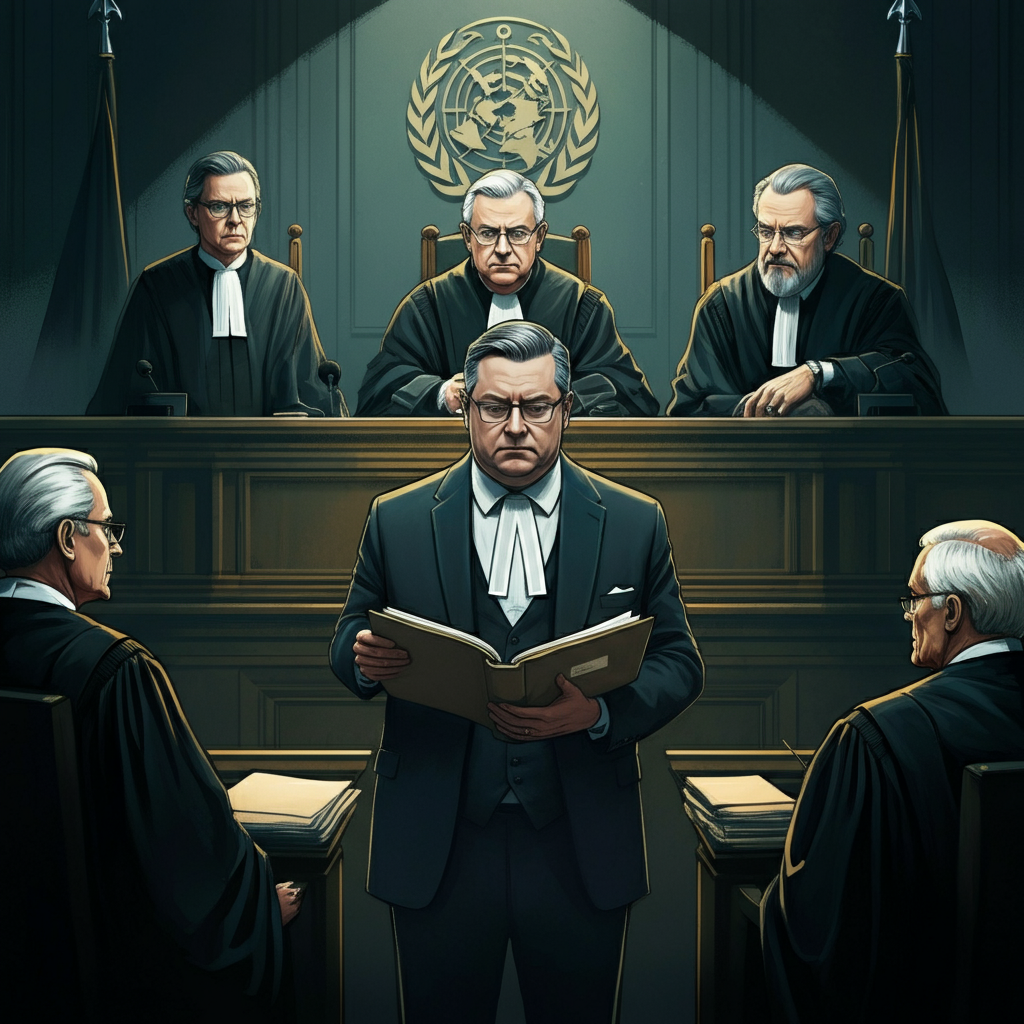A groundbreaking war crimes complaint has been filed against ten Britons who served with the Israeli military in Gaza. This dossier, spanning 240 pages, was created by a team of UK lawyers and researchers, and will bring unprecedented attention to alleged atrocities committed during the Gaza conflict. Submitted by prominent human rights lawyer Michael Mansfield KC, the report accuses these individuals of heinous crimes, including targeted killings, indiscriminate attacks, and forced displacement.
This blog unpacks the complaint’s key details, legal standing, and significance in the context of international human rights and justice.
Table of Contents
Allegations of War Crimes
The complaint levels serious accusations of war crimes and crimes against humanity against the ten Britons. Key allegations include:
- Targeted Killings: The report highlights the systematic killing of civilians and aid workers, including sniper attacks. Targeting those who serve essential humanitarian functions directly violates international humanitarian law.
- Indiscriminate Attacks on Civilians: The complaint alleges widespread assaults on civilian areas, such as hospitals, religious sites, and historic landmarks. Such acts, if proven, contravene the Geneva Conventions.
- Forced Displacement: Civilians were allegedly subjected to forced transfer from their homes, a practice regarded under international law as a war crime.
The magnitude of these allegations, combined with the use of open-source evidence and firsthand testimony, has created a compelling case for investigation.
Compilation of the Report
Legal professionals from the Gaza-based Palestinian Centre for Human Rights (PCHR) and the UK-based Public Interest Law Centre (PILC) compiled the dossier over six months.
- Timeline of Alleged Offenses: The report meticulously documents acts committed during Israel’s extensive military campaign in Gaza from October 2023 to May 2024.
- Evidence Collection: Open-source materials and witness testimonies form the backbone of the evidence, offering a comprehensive and harrowing account of events.
Witness accounts, such as a medical professional who described corpses scattered across a hospital courtyard and buried in a mass grave, are central to the report.
“This is a matter of dignity and legality,” says Raji Sourani, PCHR Director. “The detailed evidence in this report leaves no room for ignorance or denial.”
The Legal Foundation for the Complaint
This war crimes complaint draws its legal basis from Section 51 of the International Criminal Court Act 2001, which allows British courts to investigate and prosecute genocide, war crimes, and crimes against humanity committed outside the UK.
Michael Mansfield KC, known for his work on landmark cases, emphasized that British nationals are obligated under national and international law not to participate in or further acts of war crimes. His statement asserts, “No one is above the law.”
The report also contends that Britain is responsible under international treaties for pursuing accountability for individuals implicated in “core international crimes.”
Context of the Gaza Conflict and Israel’s Denials
Israel has consistently denied accusations of war crimes committed by its military. It maintains that its actions in Gaza were a legitimate response to the attack of Hamas on southern Israel on October 7, 2023. That incident resulted in over 1,200 deaths, mostly civilians, and 250 hostages taken by Hamas.
- Casualties in Gaza: The Israeli military campaign followed led to over 50,000 deaths, many of them civilians, according to reports cited in the dossier.
- Israel’s Position: Israel has justified its military actions as necessary for national security and defense.
The complexity of this conflict underscores the importance of independent investigations to determine accountability on both sides.
Witness Testimony and Human Stories
Forensic details become flesh and blood through firsthand accounts included in the report. One witness, stationed at a medical facility, vividly recounts horrifying scenes of mass graves and destroyed hospital grounds. A bulldozer, they noted, desecrated a dead body in what they described as a “heart-wrenching” moment.
Such testimonies embody the human impact of war crimes, serving as both evidence in legal proceedings and a stark reminder of the cost of inaction.
Support for Thorough Investigation
The legal community and human rights advocates have rallied behind this effort. A letter signed by scores of experts urges Scotland Yard’s war crimes unit to investigate all allegations thoroughly. Sean Summerfield, a barrister involved in drafting the complaint, stated, “The public will be shocked to hear that there’s credible evidence implicating Brits in these crimes.”
Support for the investigation reflects a collective moral and legal demand for accountability—regardless of citizenship or political context.
Frequently Asked Questions
Why is this war crimes complaint unique?
This is one of the rare cases where individuals with British nationality have been directly implicated in alleged war crimes during the Gaza conflict. It underscores how national jurisdictions can be pivotal in holding individuals accountable for atrocities committed abroad.
What role does international law play?
The case leverages international treaties and the International Criminal Court Act 2001, which allows British courts to prosecute crimes of this nature, regardless of where they took place.
Which organizations are involved in the complaint?
The complaint was submitted on behalf of the Palestinian Centre for Human Rights (PCHR) and the Public Interest Law Centre (PILC), with contributions from researchers in The Hague.
Will the identities of the suspects be revealed?
Due to legal constraints, the identities of the accused, including some officer-level personnel, remain confidential.
What is the expected outcome?
Legal experts are pushing for suspects to be brought to trial in Britain, with potential charges for war crimes and crimes against humanity.
The Road Ahead for Justice
This war crimes complaint against Britons involved in the Gaza conflict marks a pivotal moment in the pursuit of global human rights accountability. It highlights not only the atrocities of modern warfare but also the responsibility of nations to hold their citizens accountable for their roles on international stages.
While investigating and prosecuting these allegations will be complex and time-consuming, submitting this dossier is a critical first step.
The call for accountability is clear—and so is the mandate for the UK government and its legal institutions to ensure that no one, regardless of nationality or rank, is above the law.

